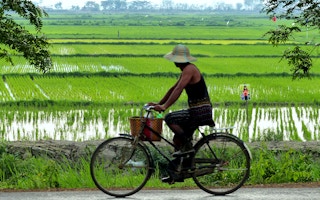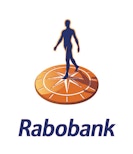An unusual US$50 million loan this year made many sustainable finance players sit up and take notice.
Unlike most sustainability-linked deals where clients pay lower prices for meeting certain environmental or social targets and higher costs if they do not, this loan was more stringent—the borrowing facility would cease if sustainability targets are not met.
The loan, by Dutch development bank FMO and financial services provider Rabobank, was to global agricultural supply chain company Agrocorp.
FMO’s US$25 million tranche of the loan covered prepayments and inventory, while Rabobank’s tranche covered receivables.
Under the deal, Agrocorp will work with Earth Systems, an environmental and social consulting firm, to set and monitor sustainability targets and reporting requirements. It will work with FMO to set up farmer training programmes in markets such as Myanmar, where Agrocorp has a strong presence.
Agrocorp has operated in Myanmar for 30 years and now employs more than 100 people in the country, said Vishal Vijay, director of Agrocorp Processing. Each year, through middlemen known as aggregators, the company buys more than 100,000 tonnes of rice, beans and other goods produced by tens of thousands of farmers in Myanmar.
“We don’t buy directly from the farms, but because of the kind of volume we buy from Myanmar, we are able to go to the people that we work with to set up programmes (to train farmers),” said Vishal. Agrocorp will begin working on the programmes next year.
The Singapore-headquartered company, set up with capital of S$25,000 three decades ago, reaped a turnover of US$3.8 billion in the last financial year and moved 12.5 million tonnes of goods. It has 10 processing plants in Canada, India, Australia and Myanmar, as well as offices in countries like Vietnam, Turkey and India.
The company is also expanding its plant protein business to cater to the nutrition needs of a growing world population. Plant proteins require a fraction of the land and water it takes to produce animal protein, and pulses such as beans are good for the soil as they are nitrogen-fixing crops. Agrocorp now has a plant in Canada that extracts pea protein, and a food laboratory in Singapore that creates plant protein products, said Vishal.
How everybody wins
The loan to Agrocorp benefits all parties involved, said Karen Yu, Rabobank’s head of Trade and Commodity Finance, Agri, Southeast Asia.
For Agrocorp, which had an existing relationship with Rabobank, the deal brought in new money from FMO.
With FMO’s tranche covering prepayments, Agrocorp will be able to provide funding to farmers before it receives goods from them. This offers the potential to deepen cooperation with farmers and engage them on sustainable production practices, said Yu.
Unlike commercial banks which must answer to shareholders, development banks generally have a stronger risk appetite because of the mandate to make a positive impact in developing countries and the ability to undertake longer commitments.
“
It’s hard for any company to monitor and control the supply chain and farmers’ processes using its own resources. But when you pair up with banks and external sustainability consultants, companies gain knowledge and are able to take clear steps to get things done.
Karen Yu, head of Trade and Commodity Finance, Agri, Southeast Asia, Rabobank
Sustainability-linked deals help Rabobank to drive change among its clients to transition to more climate-friendly and socially responsible practices. “Helping clients to improve their sustainability is in line with Rabobank’s mission of ‘growing a better world together’,” said Yu.
One of the ways Rabobank, a leading financier of food and agriculture, seeks to make a difference is by providing financial solutions such as sustainability-linked loans or green bonds. “Apart from helping us to maintain high reputational standards, such transactions help us to de-risk as a business as, more than ever, the potential for companies to be successful in the long run is very much dependent on managing sustainability risks,” Yu said.
Sustainability is presented to clients as a “must-have”, she said. Rabobank has an internal scoring system that rates clients’ sustainability, and the aim is to improve clients’ scores in the course of the financing journey.
Incorporating sustainability into financing also enables clients to do more.
“It’s difficult to do it on the company-level alone,” said Yu. “One trading company could be sourcing from thousands of farmers. It’s hard for any company to monitor and control the supply chain and farmers’ processes using its own resources. But when you pair up with banks and external sustainability consultants, companies gain knowledge and are able to take clear steps to get things done.”
Sustainability ‘makes good business sense’
As part of the loan, Agrocorp will comply with a number of sustainability performance standards, said Chris Smithies, Earth Systems’ director of Southeast Asia operations. These include the World Bank Group and International Finance Corporation’s Environmental and Social Performance Standards and the International Labour Organization’ conventions and labour standards.
Earth Systems’ role is to collaborate with Agrocorp’s sustainability team and provide technical assistance to meet all the requirements of Agrocorp’s environmental and social action plan, Smithies said. Such action plans—which detail compliance gaps, actions required and timelines for implementation—are typically the result of due diligence for loan facilities.
Agricultural supply chain managers can push for greater sustainability through a combination of measures, said Smithies. For example, in their contracts for suppliers, supply chain managers can include environmental and social management commitments. They can base the selection of contractors or suppliers on demonstrated sustainability performance. They may also conduct training and refresher courses, and monitor the performance of suppliers, he said.
“
The common thinking is that to become more sustainable, you’re giving up something. But actually, a lot of the time when you look at it, being sustainable makes good business sense.
Vishal Vijay, director, Agrocorp Processing
Although food supply chains came under strain from movement restrictions and other bottlenecks resulting from the Covid-19 pandemic this year, silver linings have emerged, said Vishal. “Gradually, consumers are becoming more nutritionally aware of what they consume, so I think food consumption patterns will change to promote more plant-based consumption.”
The company has also turned to blockchain and the digitisation of trade documents to minimise disruptions in food supply. Working with a Singapore company called dltledgers, Agrocorp developed a platform where suppliers uploaded documents online which its banking partners were also able to access. Overcoming the need to present documents physically—which was severely hampered by lockdowns—digitisation enables companies to be more resilient to shocks such as pandemics, said Vishal. The effort remains a work in progress as it requires more of Agrocorp’s partners to come on board, he added.
The financing provided by Rabobank and FMO has helped Agrocorp to “formalise” its sustainability goals, said Vishal. The company is looking forward to better understanding of its supply chain and the questions it should be asking its suppliers and customers. It is also looking forward to helping farmers improve their farming techniques, use of water and chemicals—and their yields, he said.
“The common thinking is that to become more sustainable, you’re giving up something. But actually, a lot of the time when you look at it, being sustainable makes good business sense,” said Vishal.











